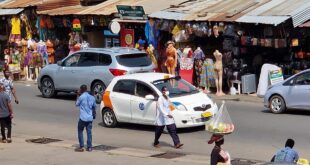To prevent a widespread infection of their populations, African countries are increasingly imposing travel restrictions to keep out people from countries that have a high number of coronavirus (COVID-19) cases.
Nigeria is the latest country to take the drastic step of imposing entry bans as part drastic measures to stop the spread of the virus in the country. “The Federal Government of Nigeria is restricting entry into the country for travellers from the following thirteen countries; China, Italy, Iran, South Korea, Spain, Japan, France, Germany, Norway, the United States of America, the United Kingdom, Netherlands and Switzerland. These are all countries with over 1,000 case domestically,” Secretary to the Government of the Federation (SGF), Boss Mustapha, who announced the ban, said it will be in force for 30 days beginning from 21 March and subject to review.
These are the other countries that have also imposed travel bans in Africa:
Uganda: Travel restrictions (in effect since 12 March) on 16 countries with high cases of coronavirus, including China, Germany, Italy, France, Spain, South Korea, US and the UK.
Namibia: Suspension of flights to and from Ethiopia, Qatar, Germany for 30 days beginning on 14 March.
Ghana: Entry ban, beginning on 16 March and lasting two weeks, on travellers from countries that have recorded 200 or more cases of coronavirus. The ban is however not applicable to Ghanaian citizens or foreigners with valid Ghanaian resident permits. “All travel to Ghana is strongly discouraged. Non-Ghanaian citizens who within last 14 days have travelled to countries with more than 200 confirmed COVID-19 cases are barred from Ghana. There is also a mandatory 14-day self-quarantine upon entry to Ghana,” Information Minister, Kojo Oppong Nkrumah, at a press briefing in Accra on Sunday, 15 March.
Botswana: Ban on entry of people from countries with confirmed cases of coronavirus. Visas issued before the ban was announced on 16 March are revoked.
Algeria: Ban on all sea and air entries of people from Europe.
Côte d’Ivoire: Entry ban on all foreigners beginning on 17 March which will last for 15 days.
Egypt: Suspension of flights from all its airports starting 19 March until 31 March.
South Africa: Travel ban on foreign nationals from high-risk countries such as Italy, Iran, South Korea, Spain, Germany, the United States, the United Kingdom and China from 18 March. Visas issued to nationals from affected countries before the travel ban have also been revoked and foreigners who have visited these countries in the last 20 days would also be denied a visa to travel to the country.
Kenya: Travel ban on foreigners from all countries that have reported any case of coronavirus. The order went into effect on 16 March and remain in force for a month. Kenyan citizens and any foreigners with valid residence permits in Kenya will be allowed to come in, provided they proceed on self-quarantine
Morocco: Suspension of all international flights to and from its territory “until further notice”.
Sudan sealed off all seaports, land crossings and airports on Monday 15 March.
Djibouti: Suspended all international flights since 15 March until further notice. The country has no confirmed case of COVID-19.
Other countries that have also instituted travel restrictions are Angola, Gabon and Seychelles.
In addition to entry bans to contain the spread of the new coronavirus, African countries have adopted sweeping measures such as closure of schools, prohibition of mass gatherings and quarantine requirements.
Twenty-seven African countries have recorded only 347 coronavirus cases, according to the World Health Organization on Monday. Four countries – Egypt, Algeria, South Africa and Morocco – account for more than half of the novel coronavirus cases on the continent.
Seven people have died from Covid-19 in Africa – four in Algeria, two in Egypt and one in Morocco.
So far around the world, the number of coronavirus cases have risen to 188,638 and killed 7,511 people.
© The African Courier
 THE AFRICAN COURIER. Reporting Africa and its Diaspora! The African Courier is an international magazine published in Germany to report on Africa and the Diaspora African experience. The first issue of the bimonthly magazine appeared on the newsstands on 15 February 1998. The African Courier is a communication forum for European-African political, economic and cultural exchanges, and a voice for Africa in Europe.
THE AFRICAN COURIER. Reporting Africa and its Diaspora! The African Courier is an international magazine published in Germany to report on Africa and the Diaspora African experience. The first issue of the bimonthly magazine appeared on the newsstands on 15 February 1998. The African Courier is a communication forum for European-African political, economic and cultural exchanges, and a voice for Africa in Europe.

























